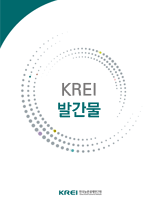NGO`s activities can be legitimate because they are based on social
phenomena and because NGOs play an important role in responding to social
dysfunction. Also, the appearance of the concept of global governance shows the
importance of NGO`s activities and the necessity of their participation in the
policy process.
The purposes of this study are to analyze how NGOs participate in the
agricultural policy process and to depict what the desirable ways of their
policy participation are.
Research methods for this study are as follows: first, in order to
analyze the real situations of policy participation of agriculture-related NGOs,
we analyzed twenty eight agriculture-related NGOs based on the data collected by
questionnaire and interviews and compared them with data gained by analyzing
fifty eight general NGOs located in Seoul; second, in order to evaluate the
participation of agriculture-related NGOs in the policy process, we conducted
questionnaire from interviewing NGOs` staffs and public officials and compared
two groups.
It is proved that the objective conditions of NGOs are not related to
the positiveness or spontaneity of their activities. The positiveness and
spontaneity of their activities are not closely related to the objective
conditions, but to their intrinsic goals and characteristics.
The necessity of NGOs` participation in the policy process is
recognized by NGOs and policy authorities. NGO`s participation can make policy
makers agricultural policies based on real fields and establish cooperation
relationship between two groups. Also, they have common opinion about NGO`s
participation in setting up the fundamental plan like mid- and long-term
agricultural and rural development plans. On the other hand, there are
differences in the disadvantages of NGO`s participation and the obstacles on the
activation of NGO`s participation.
There were considerable changes in the ways and modes of NGO`s
participation. The modes and ways of participation have been diversified such as
movement shifts from illegal riots to legal and formal participation of being a
partner of formal committees and commissions. However, in general, the
participation is still more formal. NGOs think that government policies have not
reflected the voices of actual fields. Because government authority thinks that
NGOs have stated their interest rather than the interests of the agricultural
sector as a whole, they could not help having limitations in responding to
related NGOs` voices. That is, public officials understand these phenomena as a
sort of Nimby. In order to solve these problems, NGOs` participation
should be directed to setting up their substantial participation.
It is very meaningful for government authorities to carry out
cooperative projects with NGOs. Korean agriculture is not competitive as a
whole. Only a few items have competitiveness. Rebuilding agricultural
vitality depends upon the change of paradigm based on the new recognition of
agriculture and rural areas such as multi-functionality. The basic premise
in building a new paradigm is that the protection of agriculture and government
subsidy should be based on general people's consensus. NGOs are the most
desirable organizations that try to pursue their goals without their own
interests according to the principles of social justice and public interest in
order to gain people's consensus. Some projects that need public relations
carried out by NGOs having integrity may be better than by government
agencies.
In this aspect, existing policy response of policy authority may not be
active. Although government authorities formalize NGO`s participation
according to timely needs, their positive will has been positive in establishing
a new paradigm for policy participation. They do not recognize the necessity and
value of NGO`s participation in the policy process in terms of the protection of
agriculture based on the persuasion of people.
The desirable way of civilian policy participation is that agricultural
policy authority should recognize NGOs as policy partners and carry out
agricultural projects substantially. The way of cooperation between NGOs and
policy authorities should be different from issues and make sure the roles
of NGOs and policy authority. Especially, NGOs carry out projects that need the
consensus of people and public relations.
There are some improvements in relationship between NGOs and policy
authorities. First, mutual understanding between them should be expanded. Both
sides should expand relationships and put lots of efforts to understand
each other. Also, existing relationship of the provision of supports and the
reception of benefits should be changed to the relationship of mutual
cooperation. Second, the way of policy participation of NGOs should be
diversified and substantialized such as participating committees having
decision-making authority and the delegation of agricultural policy
implementation. The objects of privatization of agricultural policy areas are
education for consumers and general public and commercialized fields enabling to
run projects without government supports. For example, the involved are the
education for environmentally friendly agriculture and retuning to the farming,
green tourism and rural amenity, consulting farming, and so on.
Foreign cases shed some lights on reforming the mode of policy
participation of NGOs. French Agricultural Lead Committee can be adopted.
However, institutional improvement needs other previous conditions like
government organizational reform.


